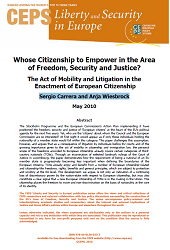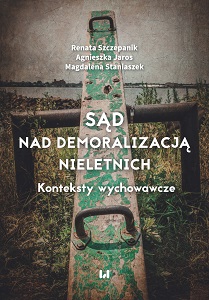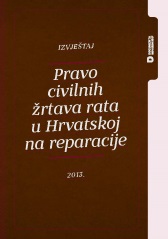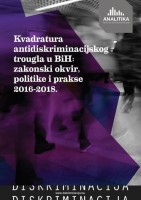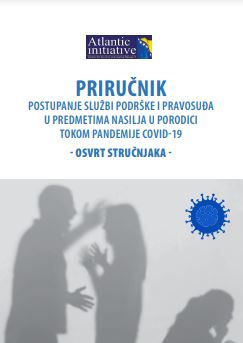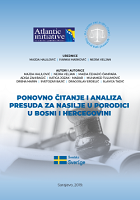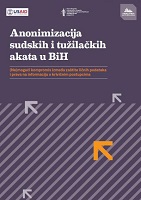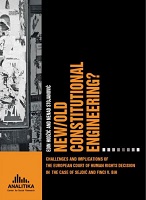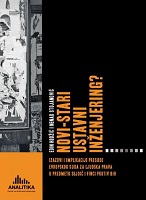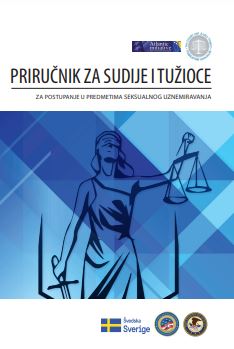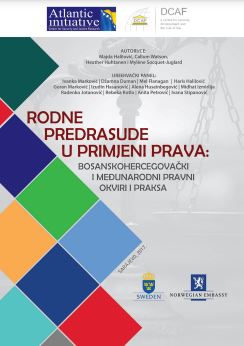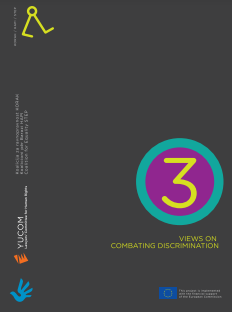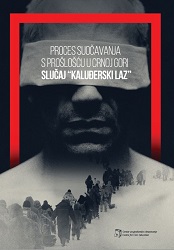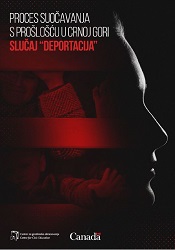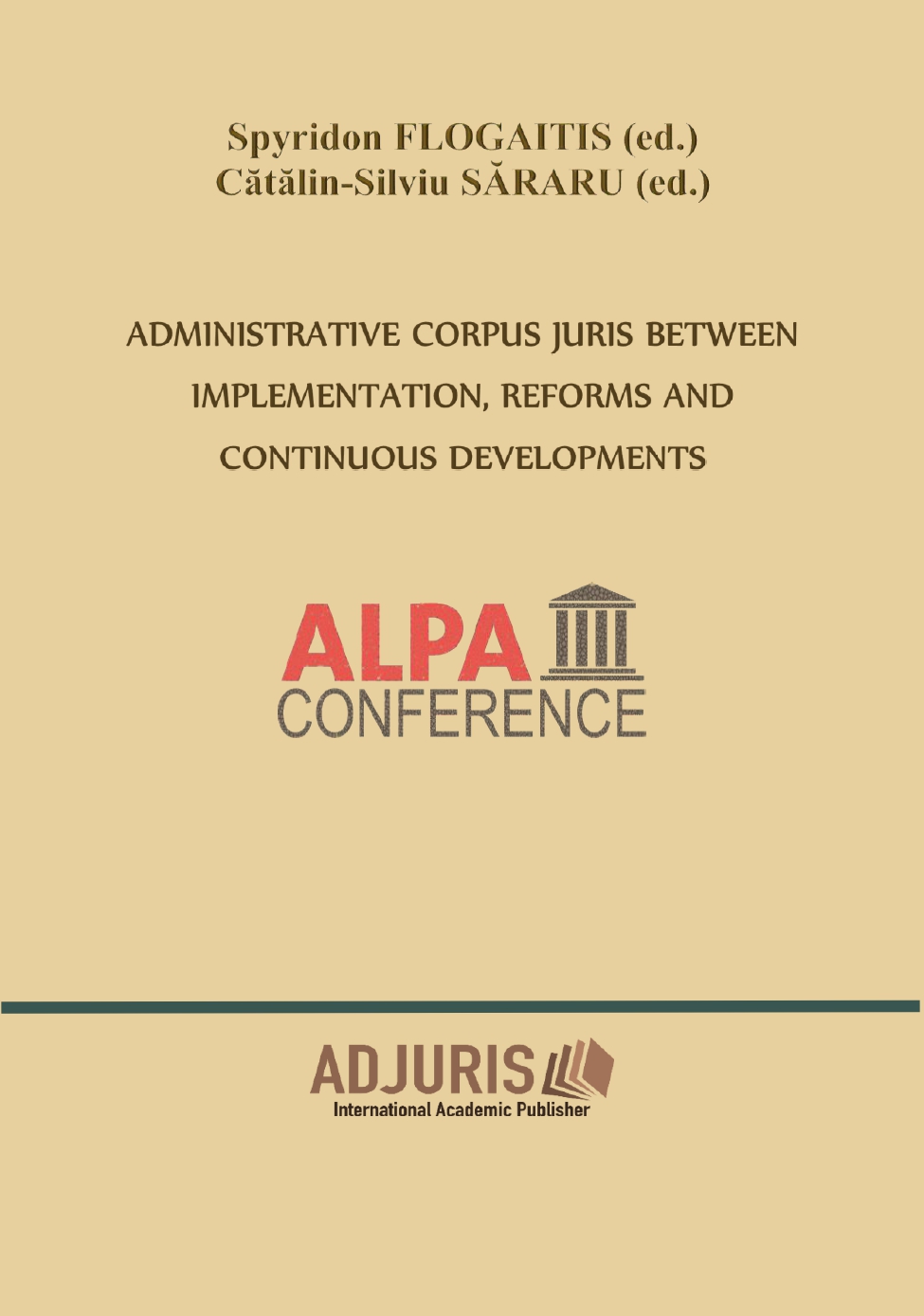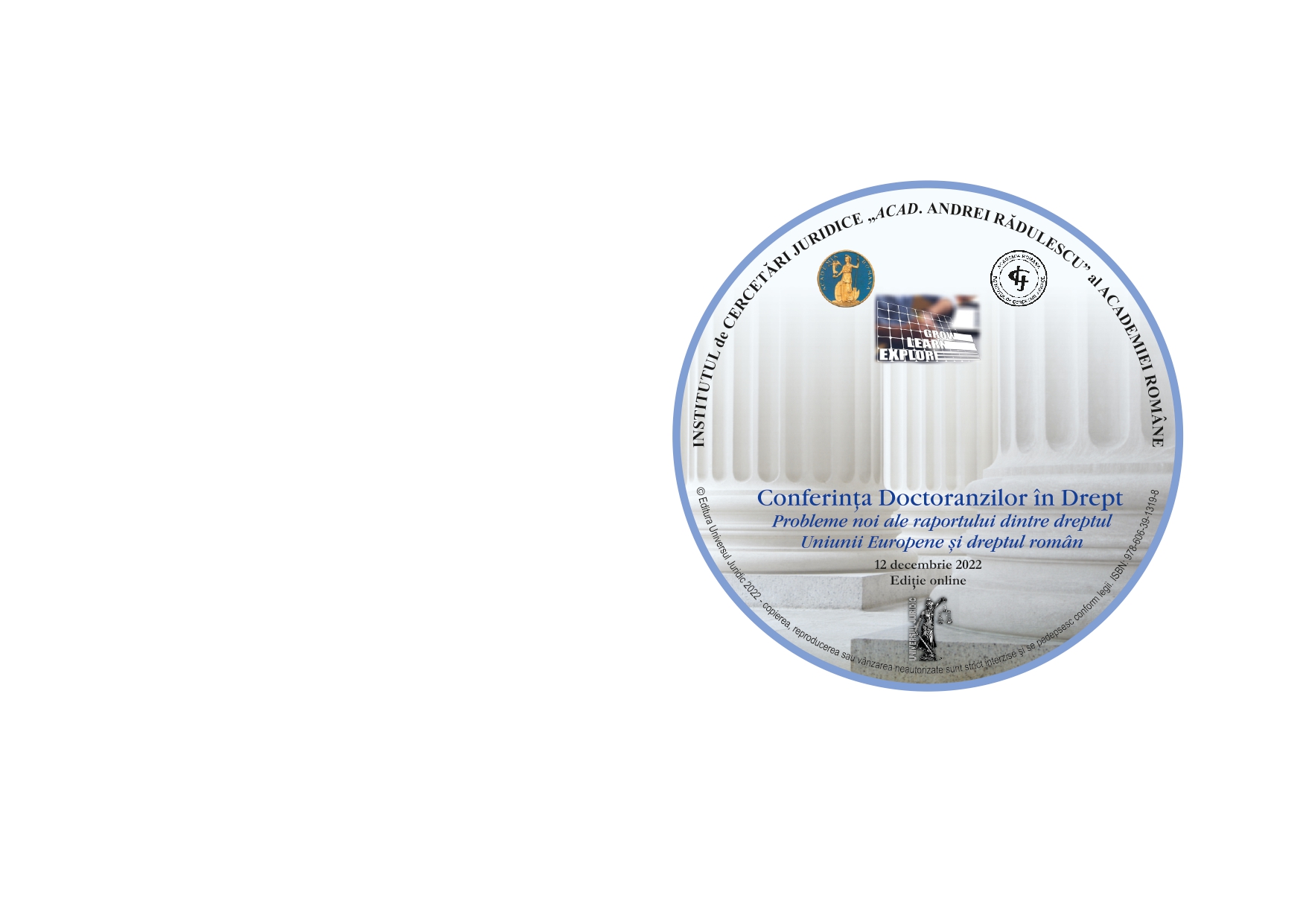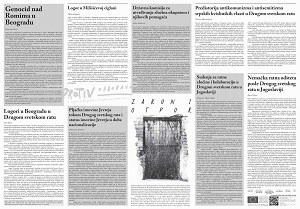Author(s): Amra Mehmedić,Edin Hodžić,Emina Ćerimović / Language(s): Bosnian
Prilikom osnivanja Suda Bosne i Hercegovine (Sud BiH) i Tužilaštva Bosne i Hercegovine (Tužilaštvo BiH), koji su sa radom u punom kapacitetu počeli 2005. godine, prepoznata je potreba za njihovom transparentnošću i intenzivnijom komunikacijom između ovih institucija i javnosti. U tu svrhu, uspostavljen je Ured za odnose sa javnošću Suda BiH i Ured za informiranje javnosti u Tužilaštvu BiH, sa osnovnim zadatkom da medijima i široj javnosti dostavljaju sve relevantne informacije koje su u posjedu i pod kontrolom ovih institucija. Djelovanje ovih ureda prepoznato je kao veoma značajna aktivnost, koja doprinosi boljem razumijevanju rada ovih institucija i zadovoljavanju realno velikog interesa javnosti – medija, organizacija civilnog društva i građana – za njihov rad. Također, uprkos njihovom ograničenom kapacitetu, prepoznata je uloga oba ureda u podizanju opće društvene svijesti o značaju i doprinosu Suda BiH i Tužilaštva BiH poslijeratnoj obnovi društva i države. U cilju ostvarivanja bržeg i jednostavnijeg pristupa informacijama iz Suda i Tužilaštva BiH, uspostavljene su i zvanične internetske stranice ovih dviju institucija. Počev od 2005. godine, među informacijama koje su bile dostupne na njihovim internetskim stranicama su: potvrđene optužnice i presude za sva krivična djela iz nadležnosti državnog suda i tužilaštva, statistički podaci, raspored suđenja, fotografije sa suđenja, saopćenja za javnost, kao i sedmični pregled aktivnosti. Pored toga, na zvaničnim internetskim stranicama bilo je moguće ostvariti i fizički uvid u druge javne dokumente Suda, kao što su rješenja i odluke. Od 2010. godine naovamo, međutim, zabilježen je trend restrikcija u pristupu informacijama sa suđenja, koje se, kako se navodi u relevantnim zvaničnim dokumentima, uvode u interesu zaštite ličnih podataka optuženih, osuđenih i drugih učesnika u postupku. Konkretno, restrikcije se ogledaju u anonimiziranju ličnih podataka pojedinaca (pri čemu anonimizacija, u ovom kontekstu, podrazumijeva zamjenu ili ispuštanje određenih podataka, odnosno objavljivanje podataka u takvoj formi na osnovu koje se konkretne osobe ne mogu identificirati), te naziva pravnih osoba, općina i gradova u sudskim odlukama i tužilačkim aktima objavljenim na internetu. U pojedinim slučajevima, anonimiziraju se i sudske odluke i optužnice distribuirane javnosti na drugi način – naprimjer, na osnovu pojedinačnog zahtjeva. Konačno, prema iskustvima predstavnika medija koji prate rad pravosuđa, pojedini sudovi i tužilaštva, pored toga što uopće ne objavljuju vlastite dokumente na internetu, ne dostavljaju ih ni na osnovu pismenog zahtjeva – anonimizirane ili ne. Spomenuti trend anonimizacije sudskih odluka i tužilačkih akata prouzrokovao je val rasprava u bosanskohercegovačkoj javnosti, koje još traju. Neki anonimizaciju vide, između ostalog, kao narušavanje načela javnosti i demokratskog zahtjeva za transparentnošću pravosuđa, povredu prava na slobodan pristup informacijama, uvođenje cenzure u medijsko izvještavanje, pa čak i kao čin skrivanja historijskih činjenica. S druge strane, anonimizacija se u pravosuđu opravdava potrebom za zaštitom ličnih podataka pojedinca protiv moguće zloupotrebe, što je posebno relevantno u doba brzog i lakog prijenosa podataka putem interneta. Ističe se potreba za zaštitom privatnosti i digniteta pojedinca, te za zaštitom prava optuženih na presumpciju nevinosti kao i prava osuđenih osoba na resocijalizaciju i rehabilitaciju. Na kraju, opravdanost identificiranja pojedinaca u sudskim i tužilačkim aktima koji se javnosti prezentiraju putem interneta preispituje se i u kontekstu faktora vremena, odnosno nereguliranog pitanja perioda tokom kojeg sudske odluke i tužilački akti trebaju biti dostupni nakon što se predoče javnosti na taj način. Imajući u vidu brojne nejasnoće i kontroverze koje prate praksu anonimizacije pravosudnih akata u Bosni i Hercegovini (BiH), ova studija nastoji ponuditi sistematičnu analizu kompleksne problematike pristupa informacijama koje su u posjedu pravosudnih institucija u BiH, a kroz prizmu zahtjeva za zaštitom ličnih podataka učesnika u krivičnom postupku. Ključna pitanja koja ova studija postavlja i na koja nastoji odgovoriti su: kako i zašto se uopće pojavila potreba za zaštitom ličnih podataka pojedinaca uključenih u krivične postupke pred pravosudnim institucijama u BiH? Kakva je trenutna praksa u tužilaštvima i sudovima u BiH u krivičnim predmetima kada je riječ o dostupnosti i eventualnom anonimiziranju optužnica i presuda? Kakva je praksa u susjednim državama, državama Evropske unije i drugdje u svijetu, te kako ovoj problematici pristupaju međunarodni tribunali i regionalni sudovi? Koji je vremenski okvir relevantan za reguliranje ovog pitanja (odnosno, koliko dugo relevantni podaci trebaju ili mogu biti dostupni na internetskim stranicama pravosudnih institucija u BiH)? Kakvi su aktuelni zakonski okvir i aktuelne politike kada je riječ o reguliranju ove problematike u BiH? Koja su prava i interesi, konkretno, u konfliktu u kontekstu anonimizacije sudskih i tužilačkih akata? Zatim, koji lični podaci zahtijevaju veći stepen zaštite u sudskim i tužilačkim aktima, te kakve su implikacije takvih, tzv. “posebno osjetljivih podataka” na javno i transparentno vođenje krivičnog postupka u BiH? I, konačno, na kojim bi se principima trebala zasnivati optimalna rješenja kada je riječ o problematici ličnih podataka u aktima pravosudnih institucija u BiH? Generalno govoreći, polazeći od postavke prema kojoj se pravo svakog pojedinca na zaštitu ličnih podataka i zaštitu privatnosti ne smije zanemariti, te uzimajući u obzir legitiman interes javnosti u ovoj oblasti, ova studija nastoji utvrditi relevantne parametre za razmatranje ove kompleksne problematike i sugerirati primjerena rješenja za BiH kada je riječ o problematici anonimizacije, odnosno obrade ličnih podataka u krivičnom pravosuđu u BiH. Uzimajući u obzir da ne postoji ujednačena praksa u BiH kada je u pitanju pristup informacijama u posjedu tužilaštava i sudova, cilj ovog rada jeste i da doprinese optimalnom nivou transparentnosti pravosudnih institucija u smislu dostupnosti informacija o krivičnim predmetima. Iako je ova problematika relevantna i za praksu objavljivanja sudskih akata i u drugim oblastima prava, naš fokus na područje krivičnog prava u skladu je sa aktuelnim trendovima u ovom području u BiH, ali i sa posebnim značajem koji krivični predmeti imaju iz perspektive javnosti. Za potrebe ove studije preduzet je niz povezanih metodoloških istraživačkih pristupa. Prvo, početno istraživanje imalo je za cilj identificirati aktuelne politike i prakse u ovoj oblasti. Kako bi se to postiglo, izvršen je pregled web-stranica sudova i tužilaštava u BiH. Pored toga, analizirani su domaći zakoni, podzakonski akti i drugi dokumenti od značaja za ovu oblast, relevantni globalni standardi, te standardi Vijeća Evrope i Evropske unije. Sagledana su i iskustva drugih država kada je u pitanju pristup sudskim odlukama i tužilačkim aktima, i to s obzirom na obim zaštite ličnih podataka u njima. Izvršen je uvid u dostupne izvještaje i stručne analize te novinske članke o ovoj temi, kako u BiH tako i u svijetu. U okviru ovog istraživanja održane su i dvije fokus grupe. Jedna fokus grupa, sa 15 učesnika, održana je sa ključnim akterima u ovoj oblasti, koje čine: predstavnici sudova i tužilaštava iz sve četiri jurisdikcije u BiH, predstavnici Agencije za zaštitu ličnih podataka u BiH, Institucije Ombudsmena za ljudska prava BiH, te Visokog sudskog i tužilačkog vijeća (VSTV). Druga fokus grupa sa osam učesnika održana je sa predstavnicima medija, Centra za ljudska prava Univerziteta u Sarajevu, Fonda otvoreno društvo BiH, TRIAL BiH, Fondacije za lokalnu demokratiju i Asocijacije za demokratske inicijative. Konačno, obavljeno je 12 dodatnih intervjua sa predstavnicima pravosudnih institucija u BiH, koje imaju različitu praksu u ovoj oblasti, sa međunarodnim i domaćim stručnjacima, te sa predstavnicima medija. Prvi dio studije nastoji ponuditi odgovarajuću hronologiju i mapirati osnovne dokumente koji su doveli do prakse anonimizacije u pravosuđu u BiH. Cjeline koje slijede raspravljaju o anonimizaciji i zaštiti ličnih podataka u sudskim i tužilačkim aktima, pitanju perioda dostupnosti sudskih odluka i optužnica na internetu, te razmatraju problematiku anonimiziranja, odnosno objavljivanja ličnih podataka s obzirom na različite načine pristupa sudskim i tužilačkim aktima. Drugi dio nastoji sagledati konfliktni odnos između prava i interesa kojima se opravdava, odnosno dovodi u pitanje praksa anonimizacije, i to u svjetlu međunarodnih standarda i domaćih propisa. Cjelina koja slijedi prezentira komparativna iskustva, odnosno praksu drugih država u ovoj oblasti, sa posebnim fokusom na zemlje okruženja i države Evropske unije. Nakon toga slijedi kraća rasprava o mogućoj gradaciji nivoa anonimizacije pravosudnih akata, uključujući i razmatranje pitanja da li je potrebno uspostaviti posebna pravila o pristupu informacijama i anonimizaciji u svjetlu posebnih karakteristika krivičnih djela, odnosno prema specifičnostima i težini konkretnog krivičnog djela. Konačno, posljednji dio studije nudi okvirne preporuke o tome na koji način razriješiti aktuelne kontroverze u ovoj oblasti, odnosno kako uspostaviti balans između prava na zaštitu ličnih podataka i javnog interesa u krivičnim postupcima u specifičnom kontekstu BiH. Važno je naglasiti da ova umnogome eksploratorna studija nema ambiciju da ponudi konačne odgovore na iznimno kompleksna pitanja koja se postavljaju u kontekstu balansiranja navedenih vrijednosti u krivičnom postupku u BiH. Njena je temeljna ambicija elaborirati ključne argumente, odnosno kriterije koje bi trebalo imati u vidu pri reguliranju ove problematike u BiH, te na taj način unaprijediti aktuelnu diskusiju o pravim modelima objavljivanja, odnosno zaštite ličnih podataka u krivičnom pravosuđu.
More...
